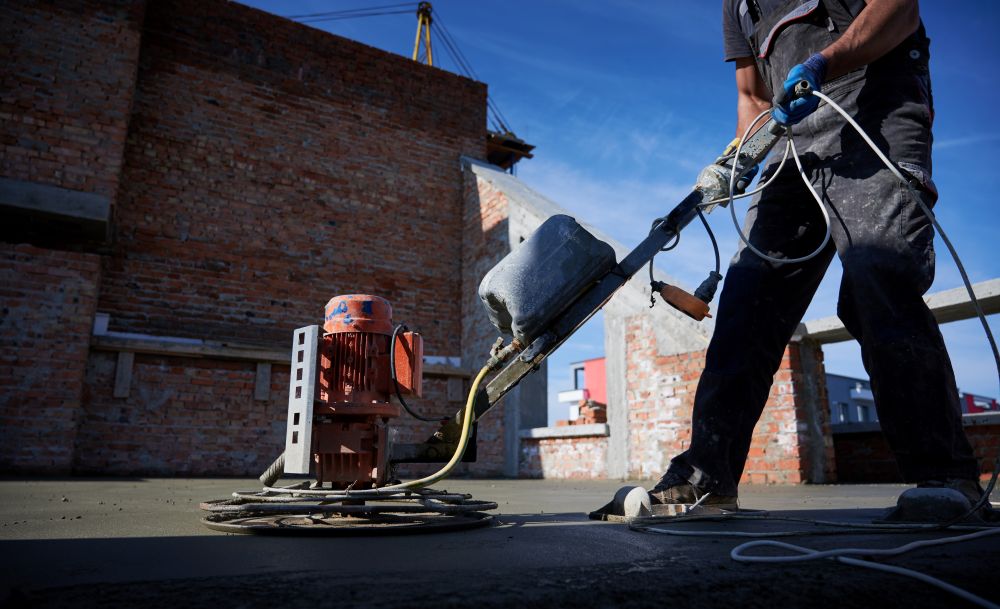A Breakdown of the Duties of a Construction Cleaner

Construction cleaners play a crucial role in maintaining job sites' safety and organization. If you're considering hiring local cleaning services for your construction project, understanding what these professionals do can help you appreciate their value and benefits. Their work goes far beyond basic tidying up. Construction cleaners handle everything from debris removal to the disposal of hazardous materials. They work hard to transform messy construction zones into clean, safe spaces.
Removing Construction Debris
Your primary task is to remove all debris from the site in a quick and safe manner. Start by sorting waste into different categories—recyclables go in one pile, regular trash in another, and hazardous materials get separated immediately. Use heavy-duty trash bags, bins, or dumpsters, depending on the type of waste you're disposing of. Work systematically from one end of the site to the other so you don't miss anything. Grab your broom, shovel, and wheelbarrow to make the job easier. Always wear your protective gear and lift with your legs, not your back. When you clear debris properly, you help keep the entire site organized and safe.
Cleaning and Sanitizing Surfaces
Before you start cleaning, figure out what materials and tools you'll need. Inspect the surfaces to select the appropriate cleaning products and equipment. Start by sweeping or vacuuming away loose dirt and dust. Then wipe down surfaces with a microfiber cloth and a cleaning solution, paying extra attention to areas that people touch frequently. After cleaning, apply disinfectant spray or wipes according to the product instructions. Make sure you cover everything and let it dry completely. Keep your supplies stocked and your workspace clean to maintain good hygiene standards on site.
Handling Hazardous Materials
You must be aware of the safety rules and wear the appropriate protective gear when handling hazardous materials. Here's what you need to do:
- Identify Hazardous Materials: Know what dangerous substances are on your construction site.
- Secure Proper Training: Get trained on how to safely handle and dispose of hazardous materials.
- Wear Personal Protective Equipment (PPE): Put on gloves, goggles, masks, and coveralls to protect yourself.
- Dispose of Materials Correctly: Follow disposal guidelines to safely remove hazardous materials from the site.
Following these rules protects you and everyone else on the job site.
Operating Cleaning Equipment
You need to know how each piece of equipment works before you start using it. Check that all safety features are working properly. Put on your protective gear, like gloves and goggles. Read and follow the manufacturer's instructions carefully. When using pressure washers, maintain the correct distance from surfaces to prevent damage. Move sweepers and scrubbers carefully to thoroughly clean all areas. Regularly inspect and clean your equipment to prevent breakdowns and ensure optimal performance. Running your equipment properly helps you maintain a safe and clean construction site.
Ensuring Safety Protocols Are Followed
Always follow safety rules when cleaning a construction site. Staying safe prevents accidents and injuries. Here's what to remember:
- Wear Proper Personal Protective Equipment (PPE): Put on your hard hat, safety goggles, gloves, and steel-toed boots.
- Follow Site-Specific Safety Procedures: Familiarize yourself with the safety guidelines applicable to your specific construction site.
- Stay Aware of Your Surroundings: Be cautious of hazards such as loose debris, wet surfaces, or moving equipment.
- Report Unsafe Conditions: Inform your supervisor immediately about any safety concerns or hazards.
Communicating With Construction Team
Good communication with the construction crew keeps everything running smoothly. Please inform the team of your cleaning schedule, any hazards you identify, and areas that require immediate attention. Update them regularly on what you've completed and any issues that may impact their work. Listen when the team gives you feedback about specific cleaning needs or changes in construction plans. Being open to communication helps you adjust your cleaning methods as needed. When you communicate well with the construction team, you help the whole project succeed.
Related Topics:



